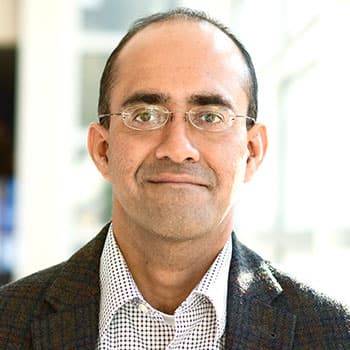“As new therapies grow, we need to think about things like chronic organ damage in sickle cell disease, because these patients will live longer with the disease,” said Versiti Blood Research Institute Senior Investigator Prithu Sundd, PhD, who studies sickle cell disease with a goal of developing new treatments. “Healthcare costs will increase, because their health management will have to be taken into account.”
Addressing healthcare disparities
Unfortunately, decades of mistrust in the healthcare system have put African American patients at a disadvantage. Some of these individuals do not fall into the strongest socioeconomic status, do not have insurance and lack the financial resources to manage their disease long-term. Many also face discrimination at the hospital when they seek emergency treatment to manage their debilitating pain, which is often only quelled by opioids. Scientists like Dr. Sundd are hard at work researching better treatments for SCD, which will help address the root cause of the disease, rather than managing symptoms as they arise.
Diversity in blood donation
Many patients with sickle cell disease receive frequent blood transfusions to manage their symptoms. Because they receive blood so often, they are prone to developing antibodies to certain blood types and typically experience the most positive outcomes when they receive blood from donors of similar ethnic backgrounds. However, “transfusions can be tricky, because many African Americans don’t donate blood,” Dr. Sundd said. “The sickle cell patients who require blood transfusions are African American, and blood donors are mostly Caucasian. So, there is a mismatch in some of the antigens. And when you have a mismatch, you can also form antibodies.”
Dr. Sundd’s aim is to improve education surrounding blood donation in diverse communities and develop new SCD therapies that tackle the disease head-on. “Something is missing,” he says. “I’m here to change things even further, and I think Versiti can help take things to the next level,” he says. “I look forward to improving the lives of these patients. The future is bright for them.”
Interested in learning more about the impact of SCD in the African American community? Listen to “What is Sickle Cell Disease?” from our Stand Out From the Inside podcast and, and watch Dr. Sundd’s interview on Truth in the Afternoon with Dr. Ken Harris.
About the expert: Prithu Sundd, PhD, is a senior investigator at Versiti Blood Research Institute.
